
Explainer | Hong Kong’s annual Tiananmen vigil, banned for the first time in 30 years: what you need to know about June 4 event in the city
- The event, the only one of its size on Chinese soil, has been called off by city police amid a ban on large gatherings due to the Covid-19 pandemic
- And with a new national security law in the wings, organisers fear the vigil, which shines a spotlight on the 1989 crackdown, may be outlawed entirely
But the Hong Kong Alliance in Support of Patriotic Democratic Movements of China, which organises the annual candlelight vigil, has vowed to head to the park nonetheless, at the risk of police intervention.
Others have made alternative plans to join Thursday’s vigil remotely, staging events marking the Tiananmen Square anniversary in theatres and churches.
Here is what you should know about the annual candlelight vigil and why it matters to Hong Kong, China and the world.
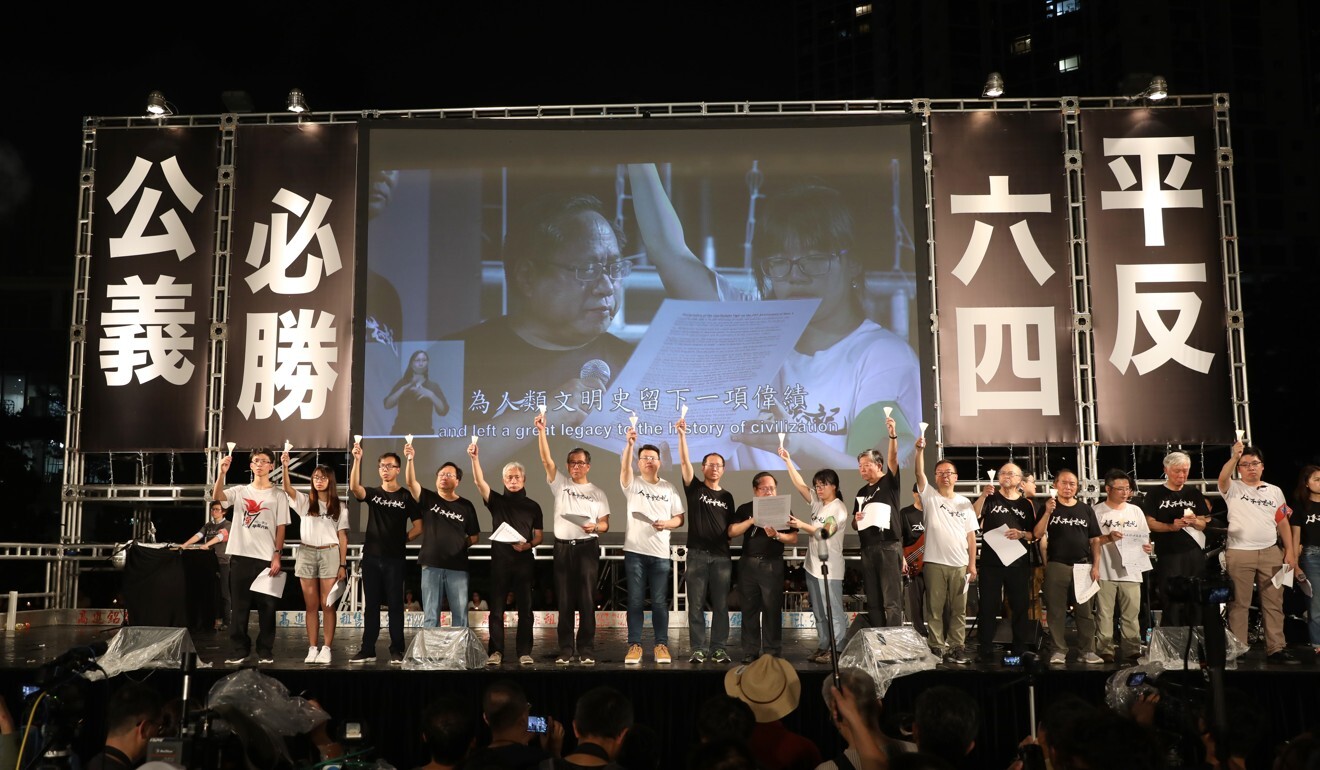
What is the significance of the annual commemoration of the Tiananmen Square crackdown?
The candlelight vigil in Hong Kong’s Causeway Bay area is the only large-scale public commemoration of the June 4 crackdown on Chinese soil.
Organisers estimate the vigil has been attended by millions since it begun in 1990.
Apart from Hong Kong residents, the event is also known to draw attendees from mainland China, and has served as an entry point into politics for some Hong Kong students.
The alliance’s chairman, former lawmaker Lee Cheuk-yan, said the vigil provides support and hope to those on the mainland who are unable to openly mark the crackdown.
When the whole of China is in the dark, in Hong Kong, we can still retain this memory, to fight against forgetfulness
“When the whole of China is in the dark, in Hong Kong, we can still retain this memory, to fight against forgetfulness,” Lee said.
During the hours-long vigil, guest speakers – including witnesses to the crackdown and young students determined to carry the torch – share their stories on stage, while pre-recorded videos featuring members of Tiananmen Mothers, a support group for victims’ families, are played.
Attendees are also led in singing such songs as Flowers of Freedom and All for Freedom, which were written to remember the crackdown.
In addition to calling on the central government to change its official labelling of the 1989 movement as an episode of “counter-revolutionary turmoil”, the alliance each year urges Beijing to release jailed activists and hold officials accountable for the lives lost.
Common chants heard at the vigil include “end to the one-party dictatorship” and “building a democratic China”.
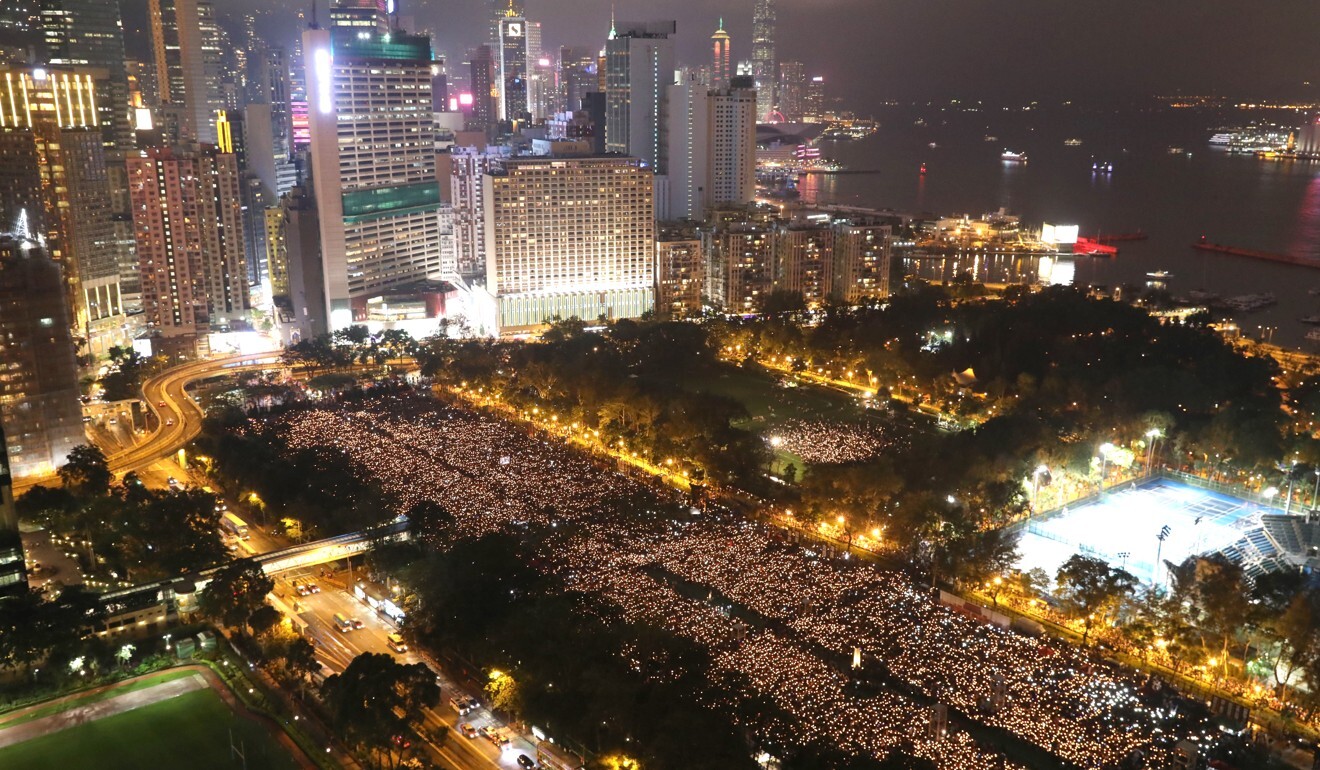
What will be different on June 4 this year?
For the first time in 30 years, the Hong Kong police have banned the vigil on public health grounds.
Citing the government’s coronavirus-driven ban on public gatherings larger than eight persons, the police have said any large public assemblies would increase infection risks for the public.
The alliance has branded the ban as politically motivated, while Chief Executive Carrie Lam Cheng Yuet-ngor said the group was free to appeal the force’s decision.
Barrister Billy Li On-yin said people violating the public gathering ban could be fined HK$2,000 (US$258), and face arrest for taking part in an unlawful assembly.
“People should be mindful of the legal risks [of gathering in public areas] and the potential use of force by police,” Li said.
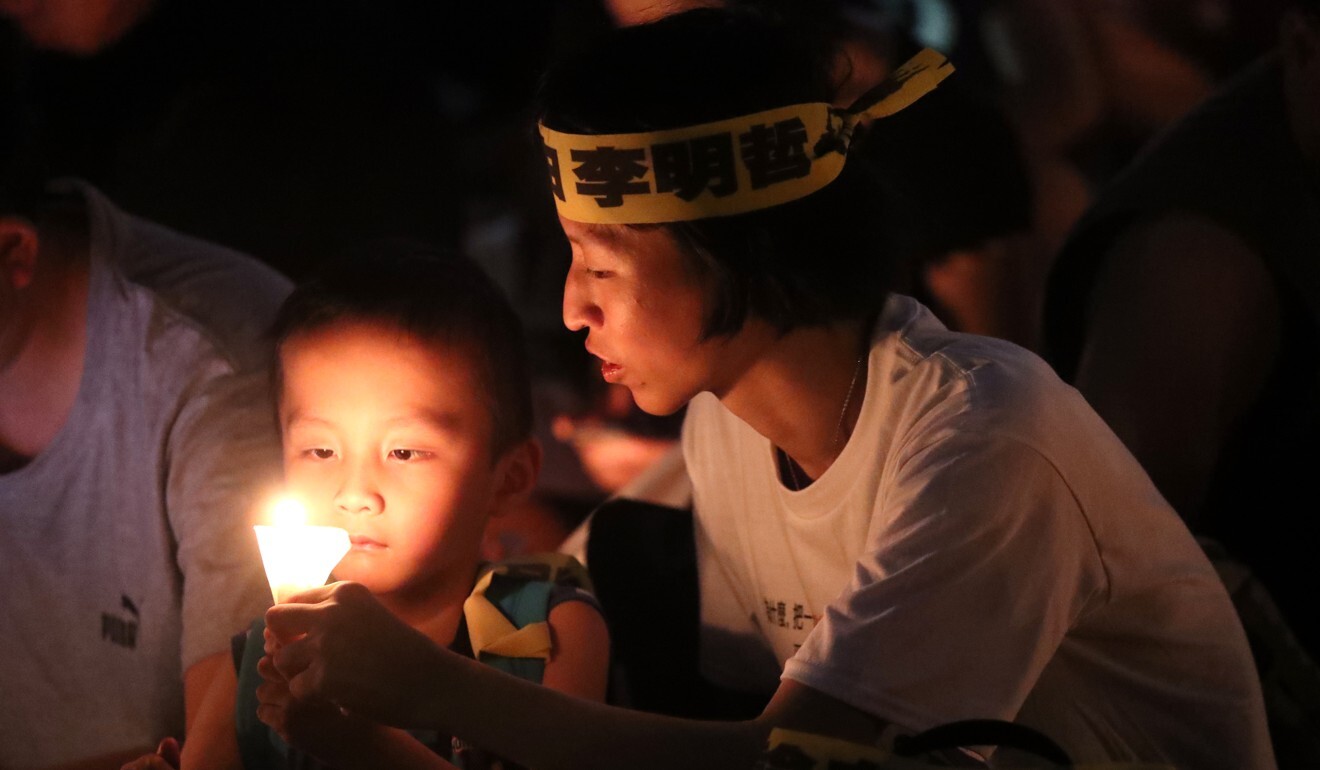
What alternative actions may the public and activists take in light of the ban?
The alliance has said its members will still head to Victoria Park to observe a moment of silence.
It has also urged people to join the commemoration by lighting candles across the city and watching a live stream. About 100 booths will be set up in various parts of town to hand out candles, the alliance said, an effort to be aided by local opposition district councillors.
Wang Dan, 51, a former Chinese student leader who lives in exile in the United States, has also said a group of activists who took part in the 1989 movement will hold an online vigil.
In Hong Kong, a local theatre company’s June 4-themed performance, May 35th, was live-streamed for public viewing on Wednesday, and at least seven churches will hold special nighttime masses to commemorate the victims of the crackdown and pray for justice and peace in China and Hong Kong.
What challenges has the vigil faced in the past?
Attendance has been through two low points in the 1990s and 2010s.
In 1995, with the crackdown still a recent memory, attendance to the vigil dropped to as low as 35,000. The situation gradually improved after teachers began taking their students in groups, according to Democratic Party veteran Cheung Man-kwong, a key member of the alliance.
The rise of localism in Hong Kong, a movement that abandoned the alliance’s dream of democratising the mainland, contributed to attendance dropping from 180,000 in 2014 to 110,000 in 2017.
Localists, who emerged amid the 2014 Occupy protests, began to set up their own events marking the crackdown, arguing residents should focus on their own fight for democracy and that China’s was not their responsibility.
The alliance’s vigil was also criticised for being “ritualistic”, and achieving nothing over the decades.
That sentiment was reflected in regular polls conducted by the Hong Kong Public Opinion Research Institute. In 2015, only 52.5 per cent of respondents supported calls for the government to change its official stance on the crackdown, down from 62.8 per cent in 2013. But that percentage climbed back up to 59.4 per cent this year.
Attendance rebounded strongly in 2019 as public anger grew over a controversial extradition bill that would have opened the door to residents potentially facing trial on the mainland. Five days after last year’s edition, an estimated 1 million Hongkongers took to the streets to protest the legislation.
In 2013, the vigil was cut short due to heavy rain and equipment failure.
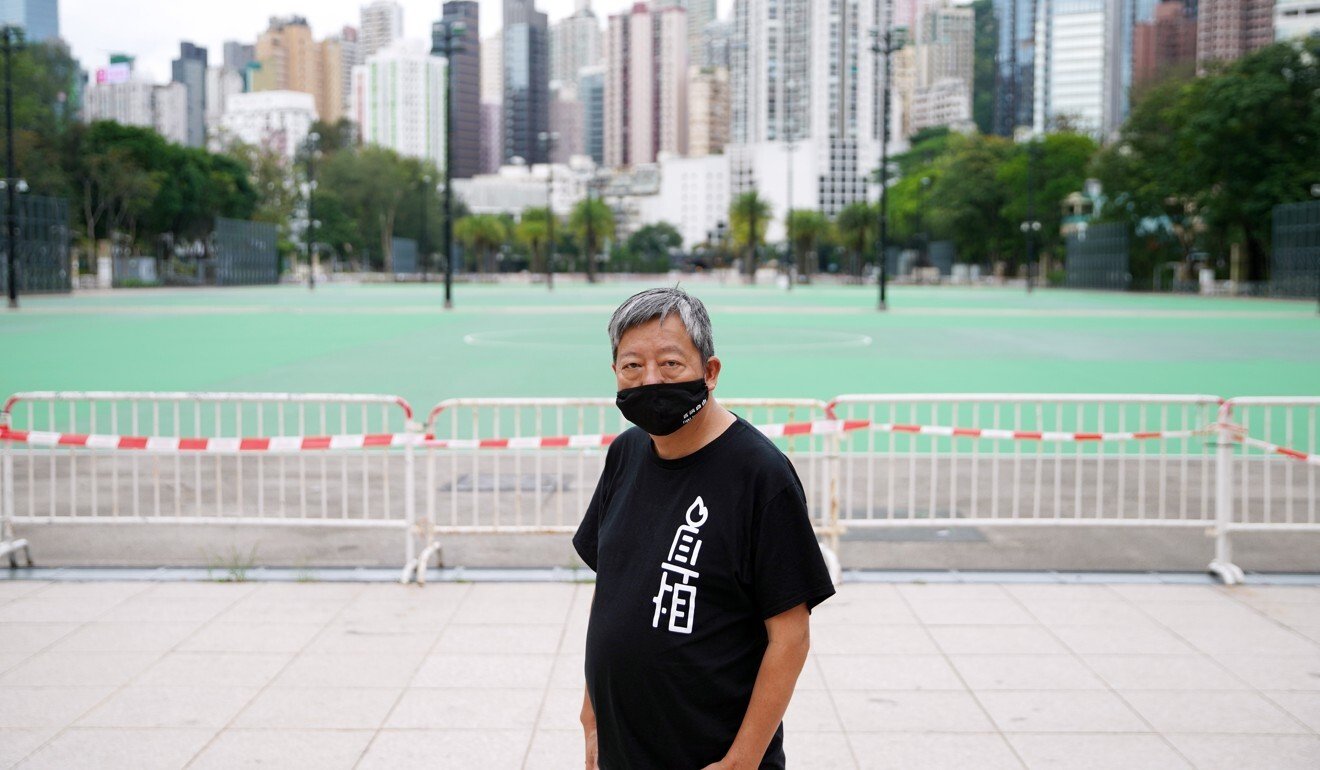
What other functions does the vigil serve?
The annual event has become an important donation drive both for the alliance and the city’s numerous opposition parties.
Last year, the alliance received a record high HK$2.75 million (US$355,000) in donations.
According to Lee, most of the donations went towards running a June 4 museum in the city’s Mong Kok neighbourhood, including paying the salaries of a handful of full-time staffers.
A smaller portion of the funds went toward supporting activists on the mainland.
The vigil has also served as a platform for other campaigns. In 2003, attendees protested against the Hong Kong government’s attempt to enact a national security law as required by Article 23 of the Basic Law, the city’s mini-constitution.
Last year, the alliance also backed a popular demand to withdraw the extradition bill. Attendees were urged to attend the mass protest that would follow a few days later.

What does the alliance do apart from organising the vigil?
The alliance also runs a museum dedicated to June 4 in Mong Kok, inside a property it bought in 2018.
Exhibits include items belonging to victims and survivors of the crackdown including clothing, a camera and a helmet. It is currently free to the public.
Finding a permanent location for the museum proved a bumpy ride for the alliance.
It initially bought a unit in a commercial building in Tsim Sha Tsui to house the museum in 2014. However, over the next two years, the group was entangled in lawsuits with the commercial centre’s owners over their intended use for the space.
It eventually sold the property in 2016, setting up temporary museums at the Jockey Club Creative Arts Centre in Shek Kip Mei for short periods in late 2017 and early 2018 before finding its current venue.
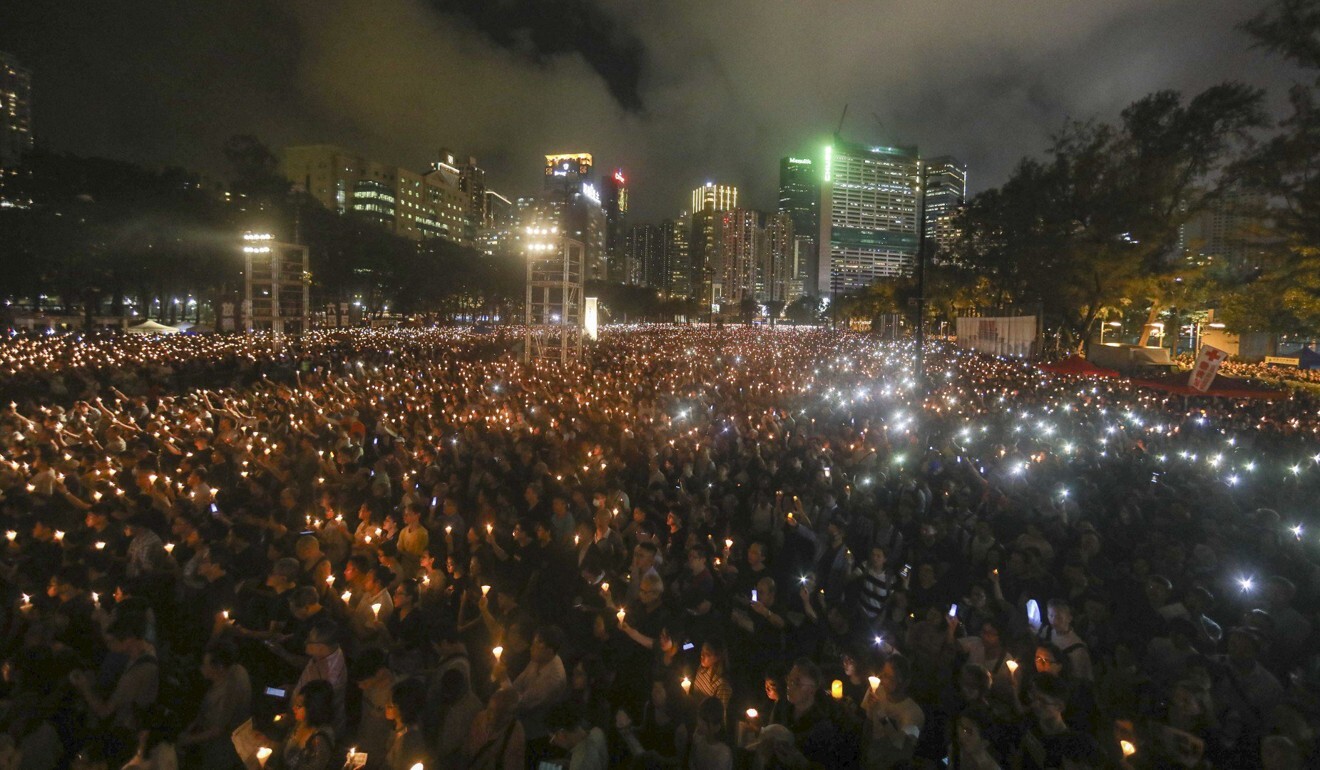
What is the likely future of the vigil given Beijing’s planned promulgation of a national security law for Hong Kong?
China’s top legislative body, the National People’s Congress Standing Committee, is drafting a national security law that could be imposed on Hong Kong as early as August.
The law’s stated intent is to prevent, stop and punish secession, subversion of state power, terrorism and foreign interference in Hong Kong, though the city’s opposition politicians and legal scholars warn it could be used to suppress dissent and erode freedoms.
Lee said the national security law could spell doom both for the peaceful vigil and the alliance, which calls for the end of “one-party dictatorship” on the mainland.
“Will the national security law target a 30-year-old slogan?” Lee asked.
Should the vigil and alliance be banned, Lee said it would signify the end of the “one country, two systems”, Beijing’s governing principle for the city, which promises a high degree of autonomy.
Losing the vigil as a fundraising base would also impede the alliance’s operations, he added.
Basic Law Committee vice-chairwoman Maria Tam Wai-chu on Monday said she would advise Hongkongers to leave if they were at an event where they heard slogans calling for an end to “one-party dictatorship”.
“You have to make a decision. If that is not your goal, you should walk away,” she said.

